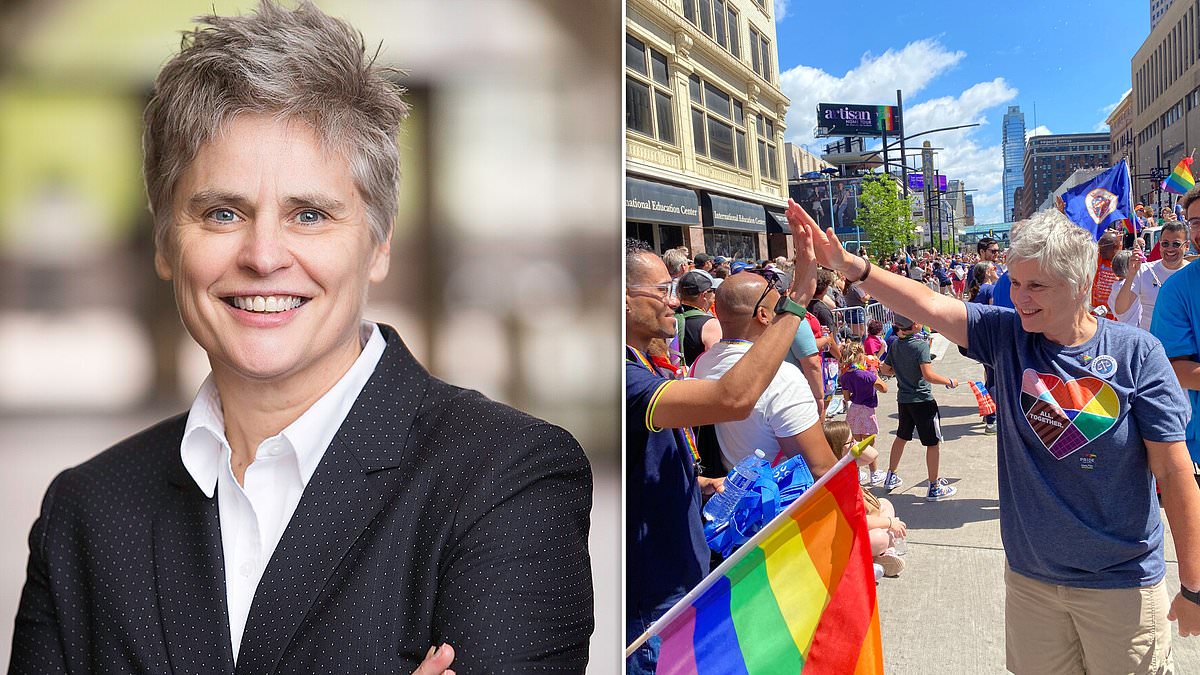America’s wokest DA launches shocking new soft-on-crime policy set to make Minneapolis even more dangerous
By Editor,James Gordon
Copyright dailymail

A District Attorney dubbed the ‘wokest’ in the country has launched a new ‘soft-on-crime’ policy that is set to make her city even more dangerous.
The controversial change introduced by Hennepin County Attorney Mary Moriarty takes effect October 15.
Under the new policy, if police pull someone over for a minor issue like a broken taillight and then find illegal drugs or a gun, the county attorney’s office will no longer press charges.
Moriarty is unapologetic, claiming the stops disproportionately target black and brown drivers, rarely result in serious convictions and are ineffective at recovering contraband or improving safety.
‘Non-public-safety traffic stops do not protect public safety, and they actively harm our community,’ Moriarty said on Wednesday. ‘This policy is grounded in research and best practices.
‘This policy is grounded in research and best practices that clearly demonstrate these stops deeply undermine community trust, which has a significant negative impact on law enforcement’s ability to investigate crime and our ability to prosecute cases.’
Under the new policy, the Hennepin County Attorney’s Office will decline to prosecute felony charges, including weapons or narcotics possession, if they result from stops based solely on infractions like a broken headlight, missing side mirror, or cracked windshield.
Exceptions will be made only in cases involving clear public safety threats.
Other infractions that will now be overlooked include, expired plates, a broken tail light, items dangling from the rearview mirror, excessively tinted windows, failure to signal a turn and a dim license plate light.
In other words, if a police officer pulls over a vehicle for one of these minor violations and then finds an illegal gun, stash of fentanyl, or other felony-level evidence, Moriarty’s office will refuse to prosecute.
DA Moriarty has previously been accused of being soft on crime; since obtaining the position in 2023, she has angered victims’ relatives with her recommendations for sentencing – even clashing with the liberal George Soros-backed attorney general for Minnesota, Keith Ellison.
She previously made headlines for declining to charge certain juvenile suspects in high-profile cases, sparking outrage from police unions and some community members.
‘We’re not talking about dangerous driving behavior,’ Moriarty said in an interview with the Star Tribune.
‘When we’re talking about limited resources with law enforcement, you would rather have them focus on dangerous driving rather than these kind of things.’
Moriarty, a career public defender before becoming district attorney, has faced mounting criticism for her soft-on-crime approach, often prioritizing leniency over public safety.
Critics are already warning the policy could result in lawlessness across the state particularly in crime-plagued Minneapolis, where the public’s trust in government is already delicate.
‘They’re making an assumption, or they’re curious,’ Moriarty said, describing how some officers choose who to pull over.
‘If you’re listening they’re like, ‘What should we pull that guy over for?’ … Cops will tell you, I can follow you for a block or two or three and you’re going to commit something. You’re not going to signal in advance. You’re not going to do something.’
That kind of enforcement, Moriarty argues, leads to tragic outcomes like the police killings of Philando Castile in 2016 and Daunte Wright in 2021. Both black men were stopped for minor infractions.
In Castile’s case, he was pulled over for a broken taillight. He informed Officer Jeronimo Yanez that he had a legally permitted firearm, but was shot seven times at point-blank range as his girlfriend and her young child watched in horror.
In Wright’s case, he was stopped for expired plates and an air freshener. As officers attempted to arrest him for an outstanding warrant, Officer Kim Potter mistakenly drew her gun instead of her taser and fatally shot the 20-year-old.
‘Why would we spend limited time and money on a tactic that fails 99 times out of a hundred?’ Moriarty asked. ‘It’s an enormous waste of resources and comes at a devastating cost to our community.’
Minneapolis Police Chief Brian O’Hara said the policy is unlikely to impact city cops directly, as MPD already stopped doing pretextual stops under its consent decree with the state.
‘They were prohibited, they represented a very, very, very small percentage of the traffic stops that were being made here when I first became chief,’ O’Hara told WCCO. ‘So I think it’s largely a non-issue for us.’
Still, he acknowledged that ‘there will undoubtedly be an effect on other jurisdictions and agencies within Hennepin County, such as the Minnesota State Patrol and Hennepin County Sheriff’s Department.’
Moriarty’s office handles cases from more than 30 law enforcement agencies across the county. Having one blanket rule was critical, she said.
‘Because we work with so many agencies, we need consistency,’ she explained.
Moriarty pointed to a 2017 report showing that out of 20,170 traffic stops in Minneapolis for moving and equipment violations, only 0.5% led to gun charges and just 2.7% led to drug charges.
A former Hennepin County Chief Public Defender, Moriarty has long been a critic of aggressive policing practices and now finds herself one of the most progressive top prosecutors in America.
‘If a stop and search turned up evidence that was vital to public safety,’ Moriarty said, ‘there would be exceptions.’
‘We’re talking about real-world consequences here,’ Moriarty went on. ‘And if we want to be effective in fighting crime, we have to stop wasting time on tactics that don’t work.



